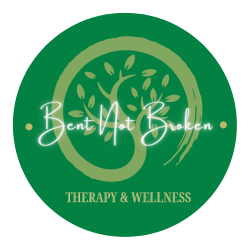Anxiety is a natural response to stress, but for some individuals, it can become overwhelming and debilitating. When anxiety reaches its peak, it can lead to what is commonly referred to as an anxiety attack or panic attack. These episodes are characterized by intense feelings of fear and panic, accompanied by physical symptoms such as a racing heart, shortness of breath, and trembling. Coping with anxiety attacks is a crucial skill to develop for those who experience them. In this blog, we will explore effective strategies for managing and coping with anxiety attacks to regain control over your life.
Understanding Anxiety Attacks
Before we delve into coping strategies, it’s essential to understand what happens during an anxiety attack. Anxiety attacks often have both physical and psychological components:
- Physical Symptoms: These can include a rapid heart rate, shortness of breath, sweating, trembling, dizziness, chest pain, and a feeling of choking.
- Psychological Symptoms: During an anxiety attack, you may experience intense fear, a sense of impending doom, a feeling of being detached from reality, and a fear of losing control or going crazy.
- Duration: Anxiety attacks typically peak within a few minutes and then gradually subside. However, they can feel like an eternity when you’re in the midst of one.
Coping Strategies for Anxiety Attacks
- Practice Deep Breathing:
One of the most effective ways to manage anxiety attacks is through deep breathing exercises. Try the 4-7-8 technique: inhale for a count of four, hold your breath for seven, and exhale for eight. This slow, deliberate breathing can help calm your nervous system and reduce the intensity of the attack. - Ground Yourself:
Grounding techniques can help you stay connected to the present moment. Focus on your senses by naming five things you can see, four things you can touch, three things you can hear, two things you can smell, and one thing you can taste. This can divert your attention from the anxiety and bring you back to reality.
- Use Positive Affirmations:
Create a list of positive affirmations that resonate with you, such as “I am safe,” “This too shall pass,” or “I can handle this.” Repeat these affirmations to yourself during an anxiety attack to counteract negative thoughts. - Progressive Muscle Relaxation:
Tense and then release each muscle group in your body, starting from your toes and working your way up to your head. This technique can help relieve physical tension and anxiety. - Seek a Safe Space:
If possible, remove yourself from the situation that triggered the anxiety attack and find a quiet, safe space. Sometimes, a change of environment can make a significant difference in how you feel. - Reach Out for Support:
Don’t hesitate to reach out to a trusted friend or family member for support during an anxiety attack. Sometimes, talking to someone you trust can help you feel less alone and more grounded. - Professional Help:
If you frequently experience anxiety attacks, it’s crucial to seek professional help. A therapist or psychiatrist can provide you with coping strategies, therapy, and, if necessary, medication to manage your anxiety. - Medication Management:
In some cases, medication prescribed by a healthcare professional may be necessary to manage severe anxiety attacks. These medications can help reduce the frequency and intensity of attacks. - Lifestyle Changes:
Consider making long-term lifestyle changes to reduce anxiety triggers. This may include regular exercise, a balanced diet, mindfulness practices like meditation or yoga, and getting adequate sleep. - Identify Triggers:
Keep a journal to track when and where your anxiety attacks occur. Identifying triggers can help you develop strategies to avoid or cope with them more effectively. - Acceptance and Patience:
It’s important to recognize that coping with anxiety attacks is a process, and it may take time to find the right combination of strategies that work for you. Be patient with yourself and acknowledge your progress, no matter how small.
Conclusion
Coping with anxiety attacks is a challenging but manageable journey. Remember that you are not alone, and there are effective strategies and professional help available to support you in regaining control over your anxiety. It’s crucial to prioritize your mental health and well-being and seek assistance when needed. By practicing the coping strategies mentioned above and seeking professional guidance, you can take significant steps towards managing and eventually overcoming anxiety attacks.
Bent Not Broken Therapy and Wellness https://bentnotbrokentherapy.com/
